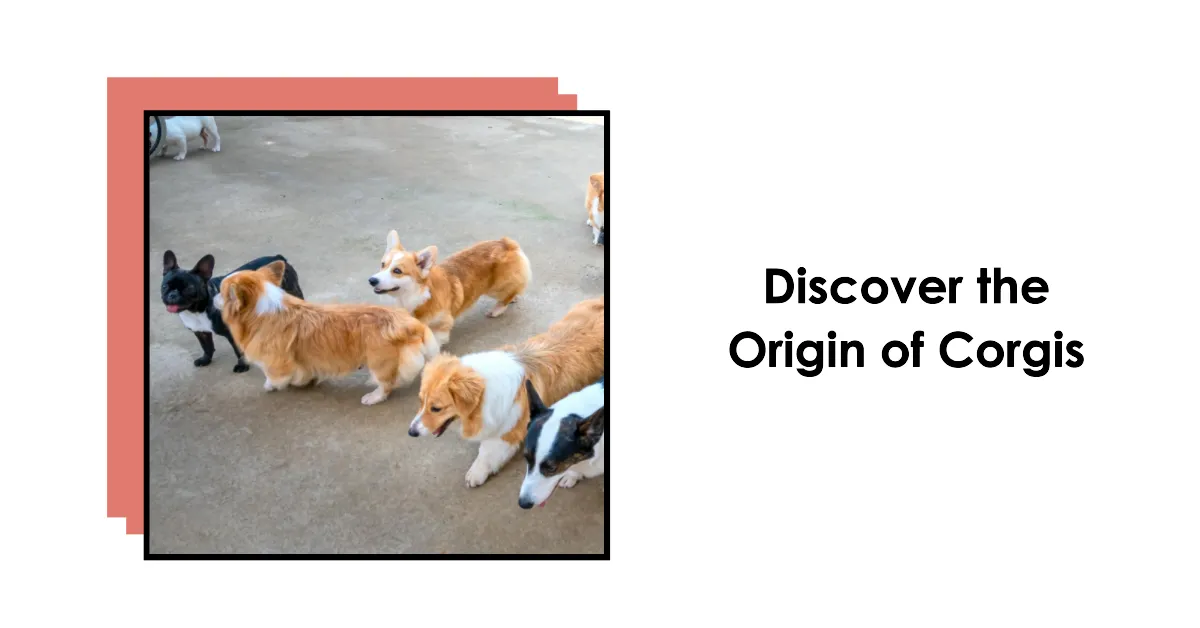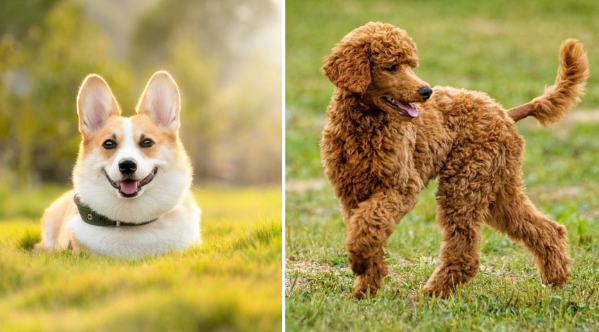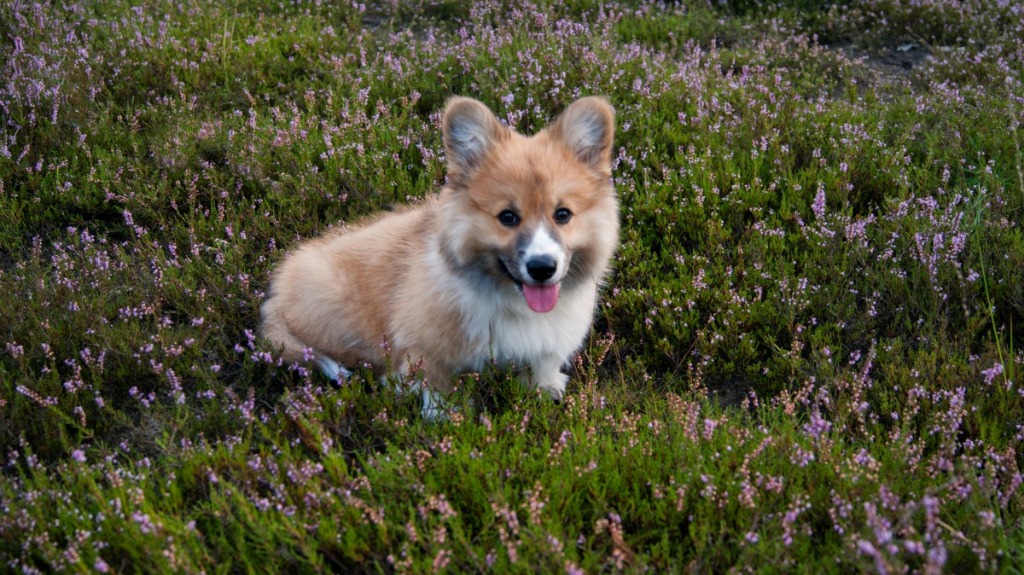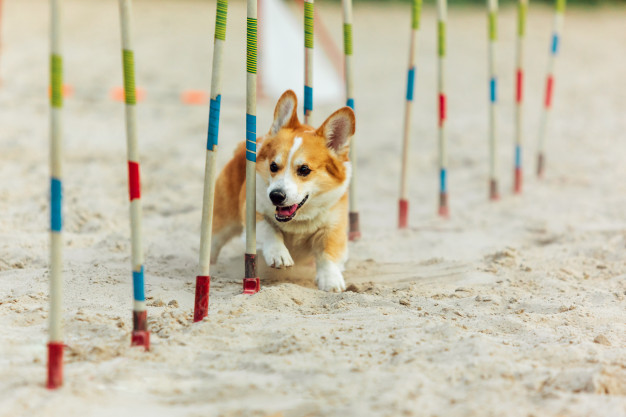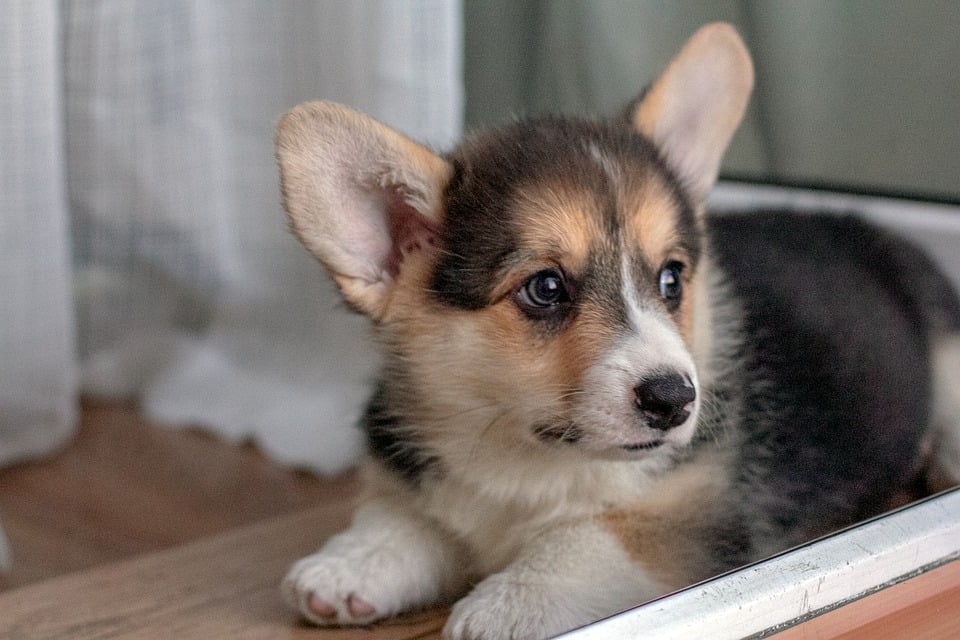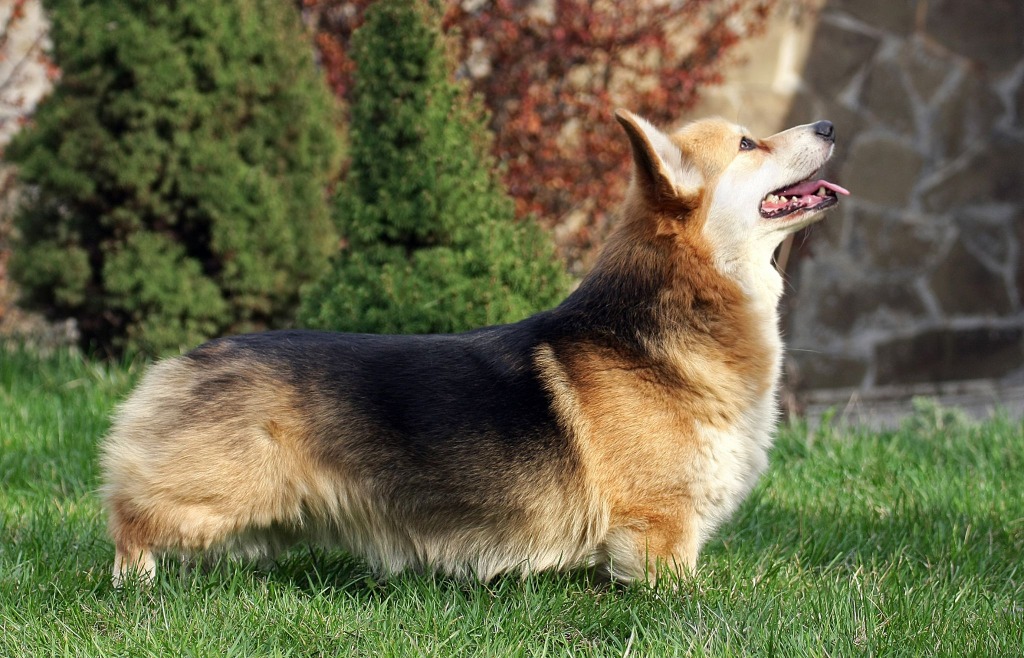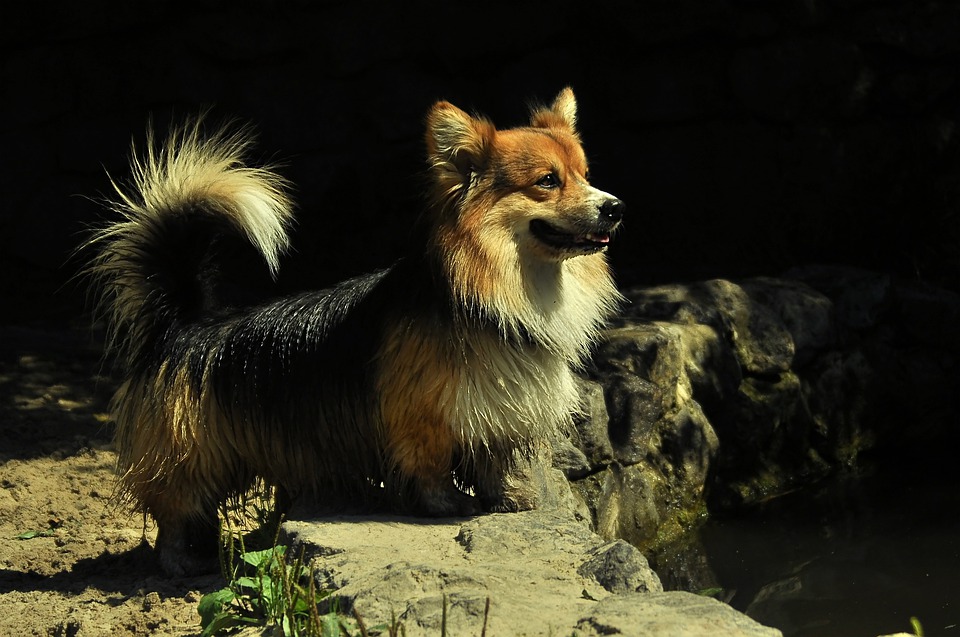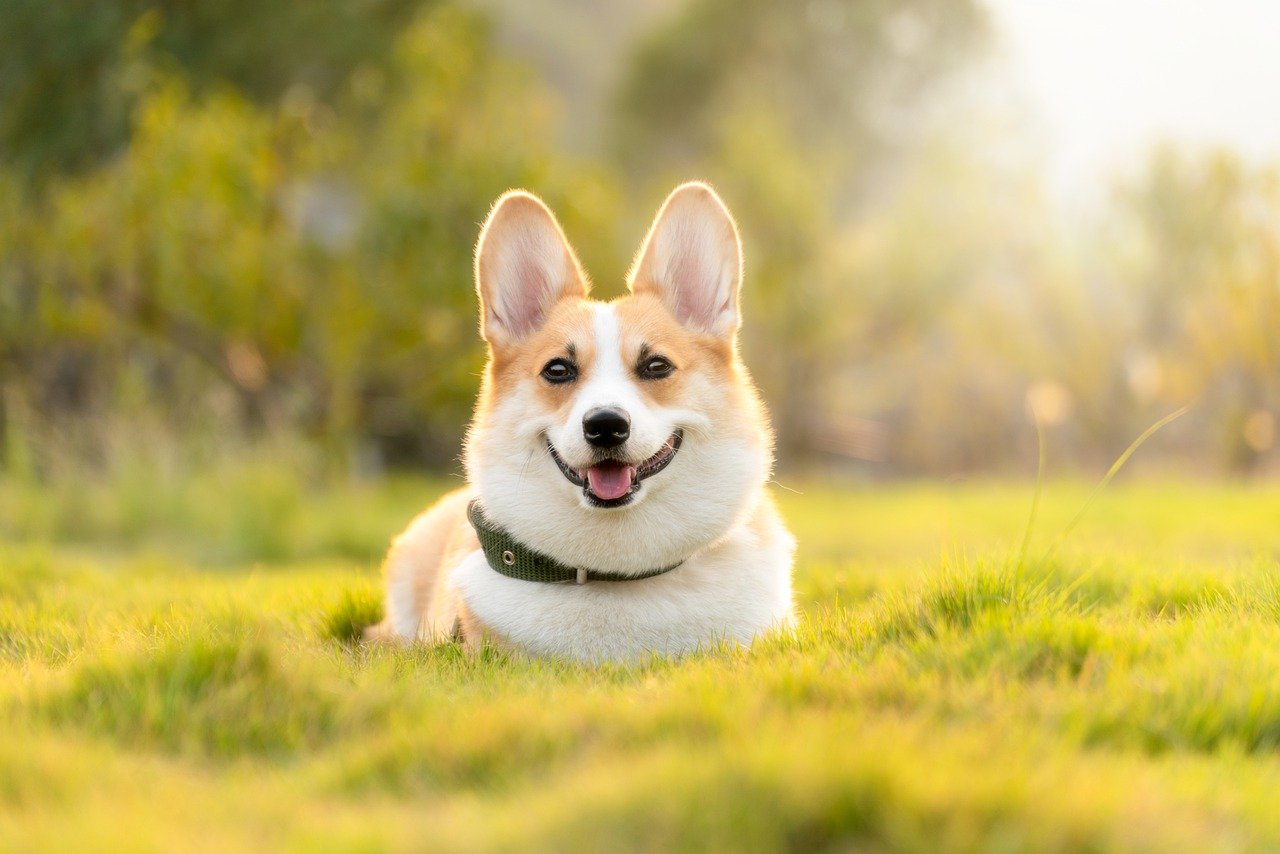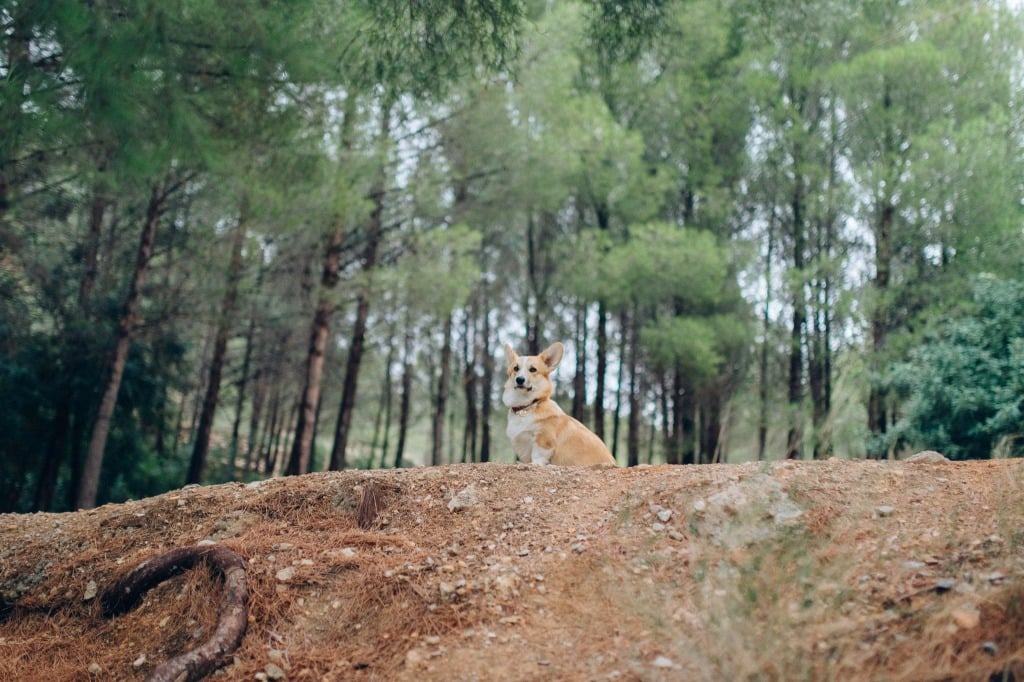Unleashing the Corgi Character

Are you ready to unlock the true potential of your corgi companion?
Just like a bright ray of sunshine on a cloudy day, your corgi's character is bursting with energy, loyalty, and charm.
Unleashing the corgi character is not only about tapping into their playful side, but also understanding their unique temperament and providing a safe environment for them to thrive.
In this guide, we will delve into the history of the corgi breed, explore their physical characteristics, and equip you with training tips to ensure a harmonious relationship with your furry friend.
So, grab a treat, buckle up, and get ready to embark on an exciting journey of discovering the true essence of the corgi character.
The History of the Corgi Breed
To understand the origins of the Corgi breed, you need to delve into their fascinating history.
The evolution of the Corgi breed can be traced back to the 10th century when they were brought to Wales by Flemish weavers. These small herding dogs quickly became an integral part of Welsh farm life, known for their intelligence, agility, and loyalty.
Over the years, Corgis gained popularity among the British royalty, particularly Queen Elizabeth II, who's owned more than 30 Corgis throughout her reign. Famous corgis throughout history include Dookie, the Corgi who starred alongside Marilyn Monroe in the movie 'Gentlemen Prefer Blondes,' and Ein, the lovable Corgi from the anime series 'Cowboy Bebop.'
These examples highlight the Corgi's enduring charm and versatility, making them beloved companions and entertainers throughout the ages.
Physical Characteristics of Corgis
Explore the physical characteristics of Corgis through their distinctive body shape and proportions. Corgis are known for their low-set, sturdy bodies and short legs, which make them easily recognizable. They have a broad chest, strong shoulders, and a well-muscled hindquarters, giving them a balanced and compact appearance. Their heads are fox-like, with a slightly rounded skull and a well-defined stop. One of the most charming features of Corgis is their expressive eyes, which are medium-sized and set wide apart.
When it comes to their coat colors, Corgis come in a variety of shades. The most common colors are red, sable, and black, with or without white markings on their chest, legs, and face.
To keep your Corgi looking their best, regular grooming is essential. Brushing their coat at least once a week will help to remove loose hair and prevent matting. Pay extra attention to their ears, as Corgis are prone to ear infections. It's also important to trim their nails regularly to avoid discomfort and potential injury.
Understanding the Corgi Temperament
Are you ready to understand the fascinating world of Corgi temperament?
These little dogs have unique behavior patterns that make them both lovable and sometimes challenging to manage.
Corgi Behavior Patterns
One important aspect to understand about the Corgi temperament is their unique behavior patterns. While Corgis are generally known for their friendly and outgoing nature, they can sometimes exhibit certain behavior problems. It's crucial for Corgi owners to be aware of these issues and address them through proper behavior training.
One common behavior problem in Corgis is excessive barking. Corgis are known to be vocal dogs, but excessive barking can become a nuisance and disturb the peace in your neighborhood. To tackle this issue, consistent training and positive reinforcement methods can be employed to teach your Corgi when it's appropriate to bark and when to remain quiet.
Another behavior problem that Corgis may exhibit is aggression towards other dogs or even humans. This can be a result of fear or lack of socialization. It's essential to address this issue early on by socializing your Corgi properly and exposing them to various situations and people in a positive and controlled manner.
Understanding and addressing these behavior patterns can help ensure a safe and enjoyable experience with your Corgi. Through proper training and patience, you can shape their behavior and create a harmonious bond with your furry companion.
Managing Corgi Temperament
To effectively manage your Corgi's temperament, it's important to understand their unique characteristics and tendencies. Corgis are known for their intelligence, loyalty, and protective nature. While these traits make them wonderful companions, they can also lead to potential challenges in managing their temperament.
One common issue is managing Corgi aggression. Corgis, like any other breed, can display aggressive behavior if not properly trained and socialized. It's crucial to establish clear boundaries and provide consistent training from an early age.
Additionally, some Corgis may be prone to temperament disorders, such as anxiety or fearfulness. In such cases, seeking the help of a professional trainer or behaviorist can be beneficial.
Understanding and managing your Corgi's temperament won't only ensure their safety but also create a harmonious and happy environment for both you and your furry friend.
Training Tips for Corgi Owners
Transform your Corgi into a well-behaved companion with these essential training tips.
Training your Corgi isn't only important for their safety, but also for the safety of others around them.
When it comes to training techniques, consistency is key. Establish a routine and stick to it.
Use positive reinforcement, such as treats and praise, to reward good behavior. This will motivate your Corgi to repeat those behaviors.
Potty training is another crucial aspect of training. Start by taking your Corgi outside frequently, especially after meals and naps.
When they eliminate outside, praise them and offer a treat. If accidents happen indoors, clean them up without scolding your Corgi, as this can cause anxiety.
With patience and consistency, you can train your Corgi to be a well-behaved and obedient companion.
Socializing Your Corgi With Other Pets
Ready to introduce your Corgi to other furry friends? Socializing your Corgi with other pets is crucial for their development and overall happiness.
In this discussion, we'll explore the importance of introducing Corgis to other pets, their typical behavior when interacting with others, and provide you with some tips for successful socialization.
Introducing Corgis to Pets
If you want your corgi to get along with other pets, it's important to introduce them properly. Here are three key tips to ensure a safe and successful introduction:
- Introducing corgis to children: When introducing your corgi to children, always supervise the interaction. Teach children how to approach and handle the corgi gently, and encourage them to give the dog space when needed. Remind children not to pull on the corgi's ears or tail, as this can cause fear or aggression.
- Introducing corgis to elderly individuals: Corgis can make wonderful companions for the elderly, but it's important to introduce them slowly. Allow the corgi to approach at their own pace and give them time to adjust to the new person. Ensure the elderly individual understands how to interact with the corgi safely, such as avoiding sudden movements or loud noises.
- Supervised socialization: Whether introducing your corgi to other dogs, cats, or small animals, always supervise the interactions. Start with brief, controlled meetings in neutral territory to prevent territorial behavior. Gradually increase the duration and frequency of these encounters, always watching for signs of stress or aggression.
Corgi's Behavior With Others
To socialize your corgi with other pets, it's important to understand their behavior and take gradual steps towards positive interactions.
Corgis are generally friendly and sociable dogs, but like any breed, they may exhibit certain behavior problems when interacting with other animals. It's important to monitor their behavior closely and intervene if necessary to prevent any potential conflicts.
When introducing your corgi to other pets, start with short supervised interactions, gradually increasing the duration as they become more comfortable. Positive reinforcement is key - reward your corgi for calm and appropriate behavior.
Additionally, corgis are known to be good with children, thanks to their patient and gentle nature. However, it's crucial to always supervise their interactions to ensure the safety of both the corgi and the child.
Tips for Successful Socialization
When socializing your corgi with other pets, it's important to start with short supervised interactions to ensure a successful introduction. Take it slow and allow your corgi to get comfortable with new pets and children at their own pace. Rushing the process can lead to fear or aggression.
Use positive reinforcement to reward your corgi with treats and praise when they exhibit calm and friendly behavior towards other pets and children. This will help them associate positive experiences with socialization.
Start socializing your corgi in controlled environments, such as a fenced backyard or a designated play area. This will provide a safe space for interactions and allow you to intervene if necessary.
Corgis as Family Companions
As a family companion, corgis bring joy and affection into your home while providing unwavering loyalty and companionship. These adorable pups have also proven to be exceptional therapy animals, offering comfort and support to those in need. Their friendly and gentle nature makes them perfect for providing emotional support and assistance to individuals with physical or mental health conditions.
In addition to their role as therapy animals, corgis have also found their place in the workplace. Their intelligence, trainability, and friendly demeanor make them great office companions. They help reduce stress and create a positive work environment. With their alertness and protective instincts, corgis can provide an added sense of security, ensuring the safety and well-being of your family.
Welcoming a corgi into your home means embracing a loyal, loving, and versatile family companion.
Unleashing the Playful Side of Your Corgi
Bring out the playful side of your corgi by engaging in interactive activities that will keep them entertained and active throughout the day. Corgis are known for their energetic and lively nature, and providing them with regular playtime is essential for their physical and mental well-being.
Here are three fun-filled activities to incorporate into your corgi's exercise routine:
- Fetch: This classic game is perfect for corgis who love to chase and retrieve objects. Grab a ball or a squeaky toy and throw it for your corgi to fetch. Not only will it keep them active, but it also strengthens the bond between you and your furry friend.
- Agility training: Set up a mini obstacle course in your backyard or utilize a local dog park. Teach your corgi to navigate through tunnels, jump over hurdles, and weave through poles. This activity stimulates their mind and helps maintain their agility.
- Hide and seek: This game taps into your corgi's natural instinct to search and find. Hide treats or toys around your house or yard and encourage your corgi to find them. It provides mental stimulation and satisfies their need for exploration.

